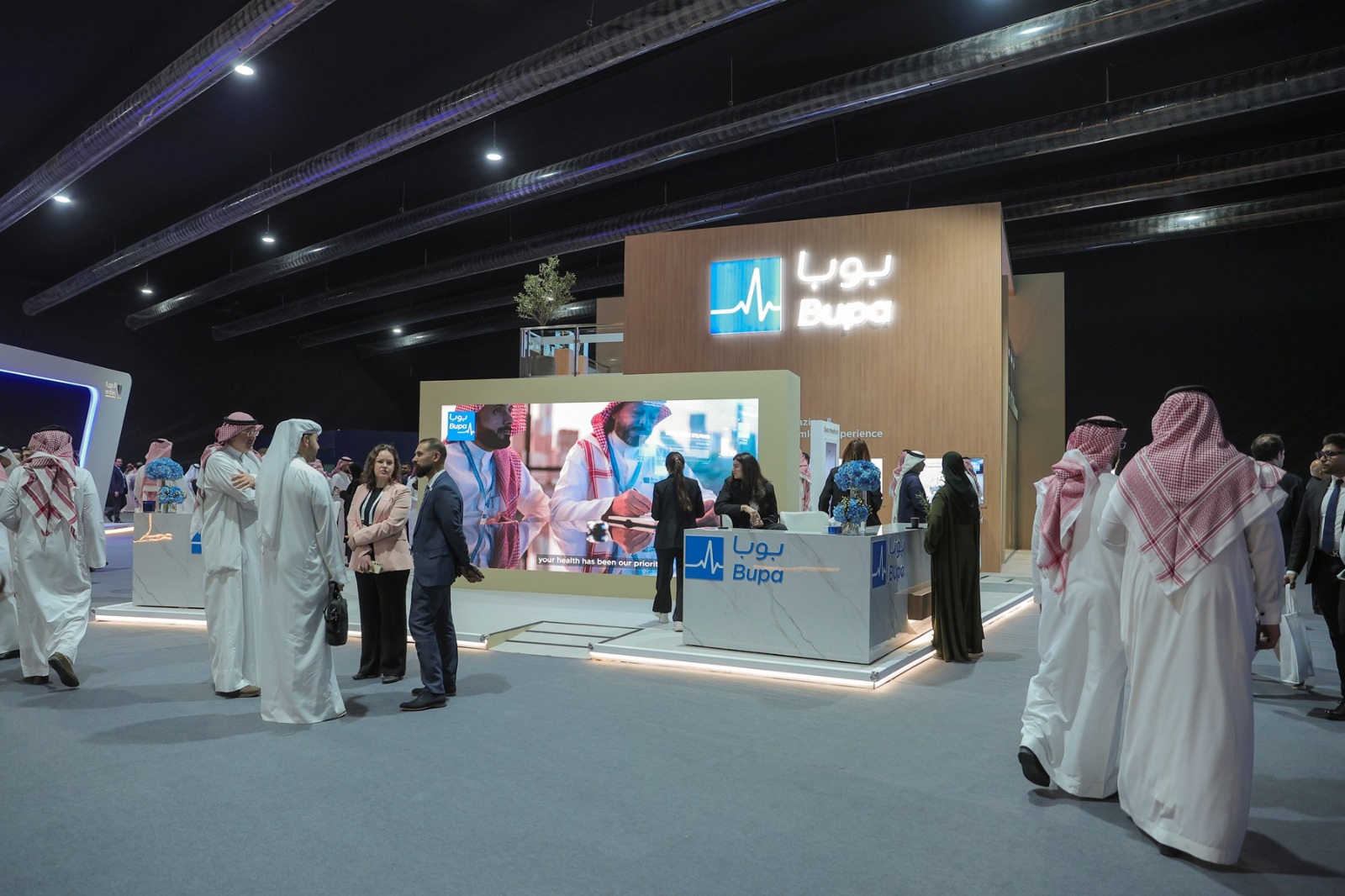
Bupa Arabia Enhances Healthcare Efficiency by Expanding the “Bupa No Pre- Approvals” Initiative
Bupa Arabia for Cooperative Insurance signed strategic cooperation agreements with several leading healthcare providers in the Kingdom, including Saudi German Hospital, Al Salama Hospital, and King’s College Hospital London, as part of the “Bupa No Pre- Approvals” initiative during its participation in the Global Insurance Conference & Exhibition (InGate 2025).
This initiative represents the first health insurance model in Saudi Arabia that allows beneficiaries to receive outpatient treatments without prior approvals. This approach expedites access to care and enhances the overall customer experience.
Expanded Network
The new agreements aim to increase the number of hospitals included in the initiative from 17 to 20 by the end of 2025, further strengthening integration between the public and private sectors. This step supports the stability of the health insurance market and boosts its operational efficiency.
Eng.Ali Sheneamer, Chief Business Development Officer at Bupa Arabia, stated to Riyadh Daily that the “Bupa No Pre- Approvals” initiative represents a fundamental shift in enhancing the customer journey. He explained that the company is transitioning from a traditional insurance model to an advanced, integrated, human-centered healthcare ecosystem that connects various services within a unified digital ecosystem, placing quality and customer experience at the center of its priorities.
Sheneamer added that through advanced digital solutions and innovative initiatives aligned with Saudi Vision 2030, Bupa Arabia aims to redefine health insurance and enable beneficiaries to enjoy a personalized, connected healthcare experience that leverages technology and innovation, while preserving the human aspect of healthcare delivery.

Eng.Ali Sheneamer, Chief Business Development Officer at Bupa Arabia
Digital Experience
The company highlighted its ongoing investments in digital solutions. Through its healthcare delivery arm, Bupa CareConnect, the company delivers an integrated care model that connects digital, on-site, and home-based healthcare within a unified digital ecosystem.
Bupa provides more than 400,000 annual medical consultations through its 24/7 Digital Clinic operated by qualified Saudi physicians, in addition to home-based laboratory services and medication delivery—enhancing quality of care and reducing pressure on traditional healthcare facilities.
Bupa Arabia also enables its customers to upgrade their hospital network or insurance benefits directly through the mobile app. According to the Insurance Authority report, Bupa achieved 81% customer satisfaction compared to the industry average of 52%, reflecting the success of its integrated health experience centered on quality and human connection.
Physical Clinics
Sheneamer explained that Bupa Arabia’s services extend to 15 on-site clinics located within major national organizations, including the Public Investment Fund (PIF), National Housing Company (NHC), Savola Group, King Abdullah Financial District (KAFD), and Alinma Bank.
The company is also preparing to open its first integrated physical clinic in Riyadh, which will offer an advanced model of primary and preventive care by connecting medical consultations, chronic disease management, and digital follow-ups within one unified care experience.
Insurance Growth
Sheneamer noted that health insurance will remain the main driver of sector growth, with total written premiums expected to rise from SAR 75.9 billion in 2024 to more than SAR 129 billion by 2030. The health insurance segment is projected to increase from SAR 42 billion (55%) to approximately SAR 83 billion (64%) of the market.
He emphasized that digital transformation, preventive care, and investment in advanced analytics and modern technologies will play a pivotal role in the sector’s future growth. He also highlighted the role of artificial intelligence in improving risk management and designing personalized insurance plans, enhancing the market’s efficiency, sustainability, and investment potential.
Virtual Care
Sheneamer expects the coming phase to witness accelerated adoption of telemedicine and virtual care, expansion of preventive health and wellness services, and the application of data-driven care models—reshaping the future of health insurance in Saudi Arabia.
These advancements are expected to improve service quality, reduce costs, and increase customer satisfaction.
He also stressed that digital transparency and advanced governance will strengthen trust in the sector and enhance its economic sustainability. The future of health insurance, he noted, will be built on innovative digital solutions, preventive care, and improved risk management, supporting the integration between the healthcare system and the national economy in the Kingdom.








